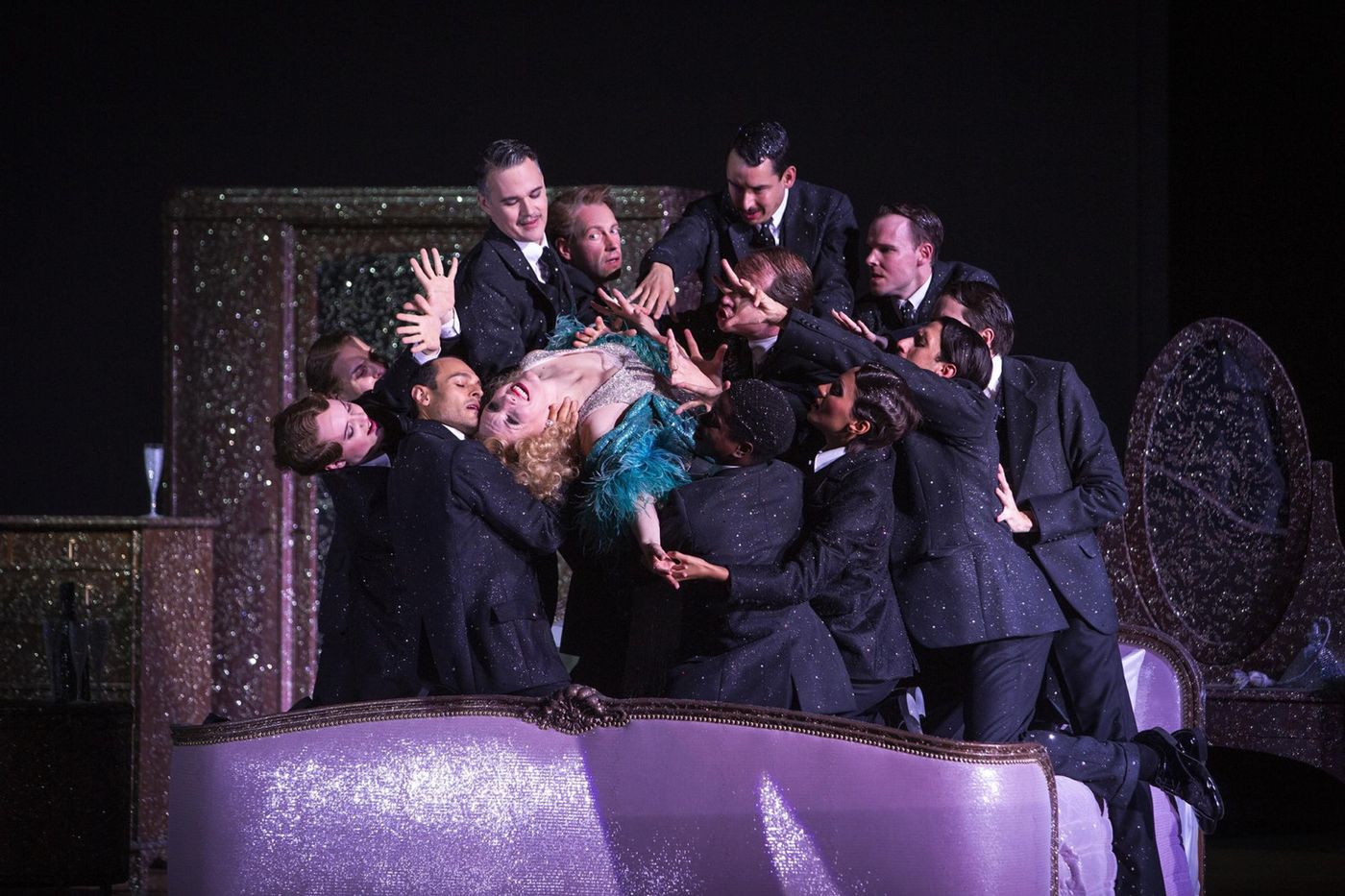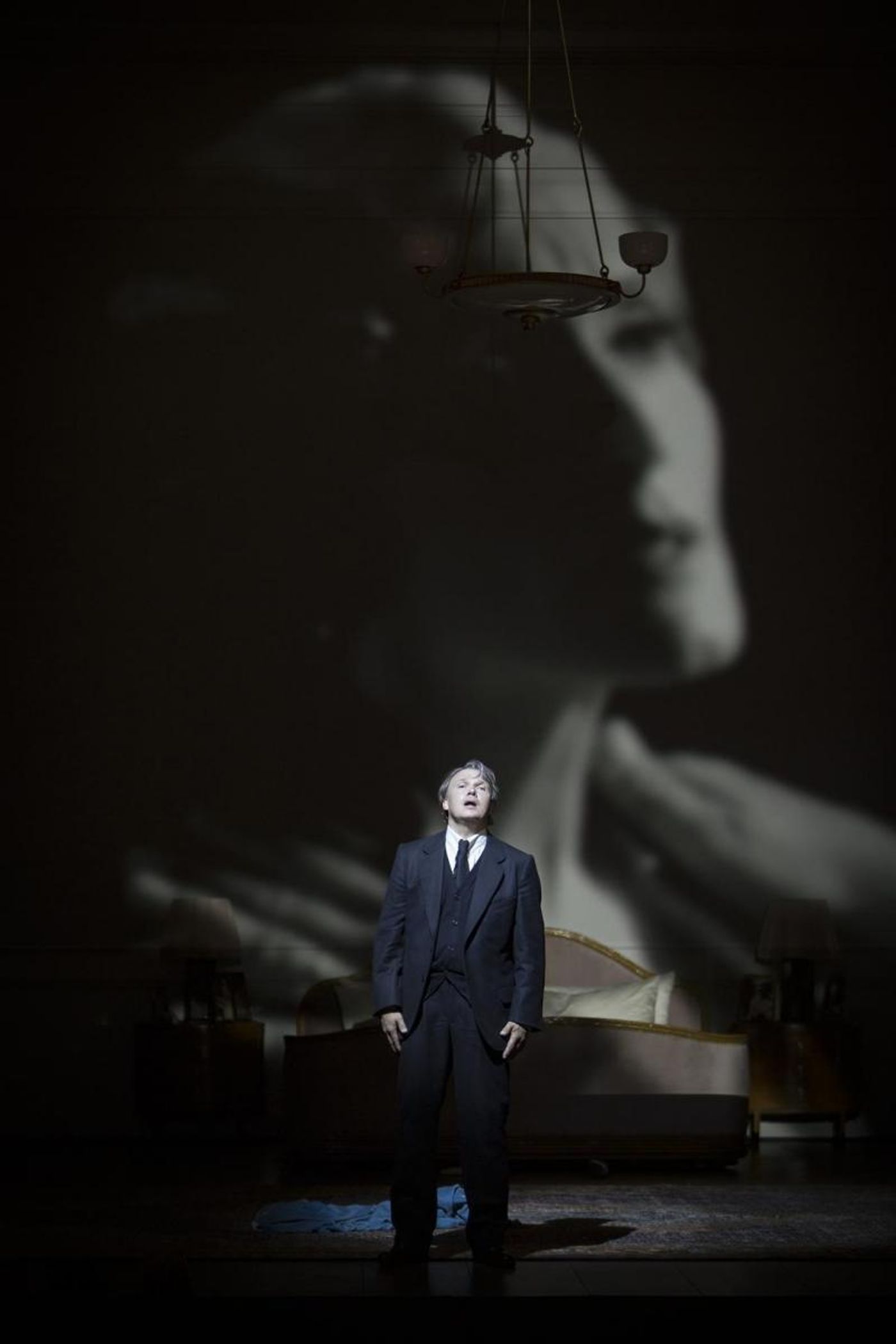Review: DIE TOTE STADT at Komische Oper Berlin - A Miscast, Misjudged, Major Disappointment
 One is seldom confronted with a performance like last night's DIE TODE STADT at Berlin's Komische Oper, and I don't mean that in a good way. Erich Korngold's opera, written by the then 23-year-old Wunderkind of the German classical music world, enjoyed enormous popularity immediately after World War I. After being banned during the Nazi regime due to Korngold Jewish heritage, DIE TODE STADT sank into oblivion until a few revivals at the Vienna Volksoper in 1967 and the New York City Opera in 1975 put it back on the classical music map.
One is seldom confronted with a performance like last night's DIE TODE STADT at Berlin's Komische Oper, and I don't mean that in a good way. Erich Korngold's opera, written by the then 23-year-old Wunderkind of the German classical music world, enjoyed enormous popularity immediately after World War I. After being banned during the Nazi regime due to Korngold Jewish heritage, DIE TODE STADT sank into oblivion until a few revivals at the Vienna Volksoper in 1967 and the New York City Opera in 1975 put it back on the classical music map.
Last night's performance, directed by Robert Carsen fails on nearly every level. The entire performance was highjacked by the conducting of the new General Music Director of the Komische Oper, Ainars Rubikis. The orchestra's playing moved from forte to fortissimo. The playing (which itself was often quite good) was so loud that it completely obliterated the singers more than 90% of the time. This is the first time I have witnessed a performance so completely "out of balance" in a major opera house. This is a mistake that inexperienced, young conductors in small, regional theaters make. This simply does not happen in a major opera house. Were it not for the in-seat subtitling system, it would have been impossible to follow the performance at any level. Nearly every review of this production has mentioned the balance problem with the orchestra. A conductor with a modicum of sensitivity would have taken this criticism to heart and damped down the playing. If this is an example of Maestro Rubikis' conducting, the Komische Oper is in serious trouble with their new hire.
 Adding insult to injury, Ales Biscein was woefully miscast as Paul. His reedy tenor was no match for Korngold's melodies and the strain of his trying to sing above Mr. Rubikis' runaway orchestra was often painful to hear. What should have been clarion high notes, were often reduced to nearly inaudible falsetto "whispers" from an audibly tired Mr. Biscein. What one heard and saw from his performance was both musically uninteresting and dramatically non-existent. Whatever talents Mr. Biscein may have, they were nowhere to be found on the stage of the Komische Oper.
Adding insult to injury, Ales Biscein was woefully miscast as Paul. His reedy tenor was no match for Korngold's melodies and the strain of his trying to sing above Mr. Rubikis' runaway orchestra was often painful to hear. What should have been clarion high notes, were often reduced to nearly inaudible falsetto "whispers" from an audibly tired Mr. Biscein. What one heard and saw from his performance was both musically uninteresting and dramatically non-existent. Whatever talents Mr. Biscein may have, they were nowhere to be found on the stage of the Komische Oper.
In the double role of Marietta/Marie, Sara Jakubiak showed promise. The big "hit" from the opera "Glück das mir verblieb" was lovely, when one could glean short snippets of it. During her offstage singing (which sounded amplified) one heard the true beauty of Ms. Jakubiak's voice, however, onstage, as with all the other singers, Ms. Juakbiak's soprano only occasionally broke through to the audience. One saw in her performance the foundation of a full characterization. In another production, with another conductor, she could be successful in this role.
As to the rest of the production, it is obvious that a lot of money and effort was spent on Petra Reinhardt's period costumes, Michael Levine's clever sets, and Peter van Praet's (assisted by Mr. Carsen) lighting design. However, musically and dramatically Mr. Carsen's concept simply does not work. The audience was exhausted by the tedium of the trivial onstage antics that one could barely hear. Mr. Carsen did his performers no favors and for long stretches of time, they seem to be aimlessly wandering about. The introduction of dancers in crystal-encrusted suits seemed like a parody of the performance. At one point, when their choreographer (David Cavelius) ridiculously had the dancers throw bed sheets over their heads and become "ghosts," I laughed out loud. Unfortunately, it wasn't supposed to be funny.
If you have never seen Korngold's DIE TODE STADT, do not go to the Komische Oper production. You'll hear beautiful orchestrations played at fortissimo and not much else. Skip it.
All photos: Copyright Iko Freese/drama-Berlin.de. Reproduced with permission.
Reader Reviews
Videos


